Actor and photographer Gili Getz will perform The Forbidden Conversation, an autobiographical one-man performance exploring the difficulty of having a conversation about Israel in the American Jewish community. The event, postponed due to February’s winter storm, now takes place on Tuesday, April 4, at 7:00 pm in Laurel Hall, room 101, and is made possible by the Center for Judaic Studies and Contemporary Jewish Life and UConn’s Middle East Studies Program. The performance is free and open to the public. Attendance at the event counts toward Sophomore Honors credit.
In The Forbidden Conversation, Gili Getz presents a deeply personal one-man performance that is based on his own journey. The play will be followed by an open discussion about the challenging conversations we have with family, friends, and our community concerning the future of Israel, the American Jewish community, and ways to process fundamental differences and disagreements.
What people are saying:
“At a time when, for American Jews, talking about Israel is so fraught and contentious Gili Getz’s Forbidden Conversation actually facilitates the conversation. His deft, rich and gripping portrayal of the difficulties in discussing Israel promises to make such discussions more likely, more civil and more productive.”
— Professor Steven M. Cohen – Hebrew Union College-Jewish Institute of Religion
“Powerful play! A well-constructed experience for opening up the ‘forbidden conversation’”
— Rabbi Reuven Greenvald, Director of Israel Engagement at the Union for Reform Judaism
“As Israel becomes an increasingly divisive issue among American Jews, conversations about Israel now frequently degenerate into bitter arguments and angry accusations. In his powerful and poignant play ‘The Forbidden Conversation’ Gili Getz addresses this issue head-on, with candor, wit, and passion. Anyone who has argued about Israel, or simply struggled to talk about it, will surely relate to and be moved by Gili’s experience”
— Professor Dov Waxman – Northeastern University – the author of Trouble in the Tribe: The American Jewish Conflict over Israel
The Forbidden Conversation trailer:
From Gili’s website:
About the play
While visiting Israel during the last Gaza war in 2014, Gili experienced difficulty talking about the path Israel is on with his father for the first time in his life. Finding himself in a forbidden conversation with his dad, and worried that it might strain their relationship, Gili embarked on a journey to understand the most complex, sensitive and contentious topic in the Jewish community — Israel. Having come of age politically while serving as a military photographer during the turbulent Oslo accords and the assassination of Yitzhak Rabin, Gili turned to photography, hoping it would help him once again make sense of a painful political argument. The result is The Forbidden Conversation, developed during the artist fellowship LABA (Laboratory for Jewish culture) at the 14th Street Y, where it premiered in the spring of 2015.
Biography
Gili Getz graduated from the American Academy of Dramatic Arts (NY), where he received the Kirk Douglas Scholarship and was a member of the Academy Company. He has performed in New York and Los Angeles in: Off-Off Broadway R.U.R. (as Gall), Off Broadway Retzach (as Flushed), Skin & Teeth (as Orion), for which he was nominated for Best Actor in a Drama (Artistic Director’s Award), Astroglide/That’s What (as Man), which he also wrote, The Broadway Play (as Lieutenant), Garbo’s Cuban Lover (as Thalberg), and in the New York premiere of Steel Tower. Gili performed at the Roxy Regional Theatre (TN) in Of Mice and Men (as George), Hamlet and the Bea[u]tiful in the Extreme. He has directed and acted in the critically acclaimed production of The Forgotten Carols for the past eight years.
Gili’s career as a photographer began as a photojournalist in the Israeli military. His photos covering Jewish-American politics have been published in Yedioth Ahronoth, Haaretz, The Jewish Week, The Jewish Daily Forward, Times of Israel, JTA, and Tikkun Magazine. His work is published by Princeton University Press in the new book “Trouble in the Tribe” by Professor Dov Waxman. Gili was the editor of the Israeli news site Ynet US.
For more information visit Gili’s website:
http://giligetz.com/the-forbidden-conversation/
Parking:
Parking is available in the North and South garages on campus. Garage rates are $1/hr after 5pm. Did you know that after 5:00 pm, visitors may park in any on-campus space not designated as reserved, restricted or limited?
Getting Here:
View an interactive map of the Storrs campus and even download the app version to your phone: http://maps.uconn.edu/map/
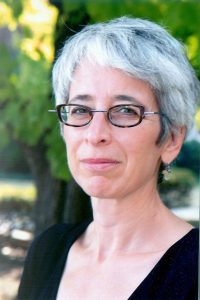 The UConn Center for Judaic Studies extends a warm and well-deserved congratulation to faculty member Professor Susan Einbinder, who has been elected as a Fellow of the Medieval Academy of America, one of only a handful of senior scholars who are chosen for this prestigious honor every year.
The UConn Center for Judaic Studies extends a warm and well-deserved congratulation to faculty member Professor Susan Einbinder, who has been elected as a Fellow of the Medieval Academy of America, one of only a handful of senior scholars who are chosen for this prestigious honor every year.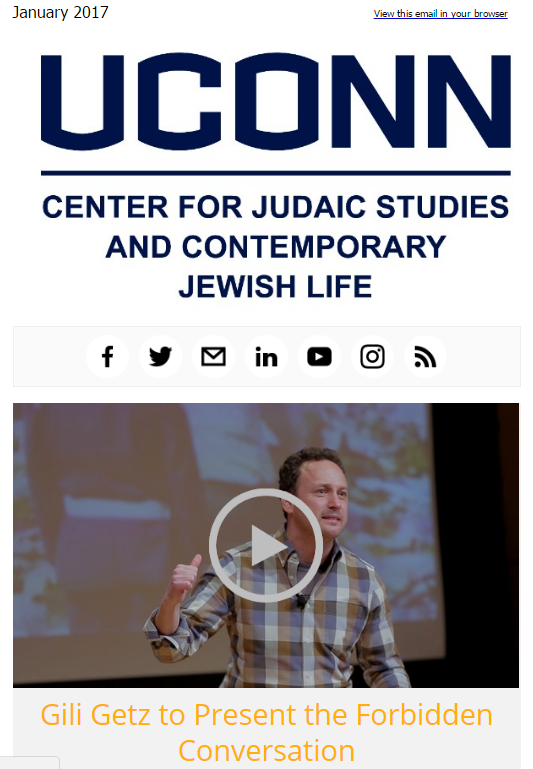
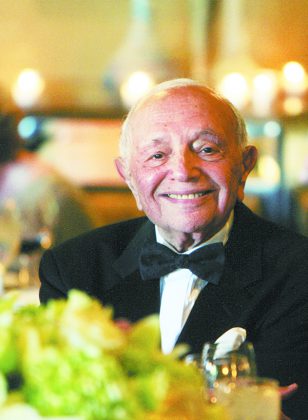
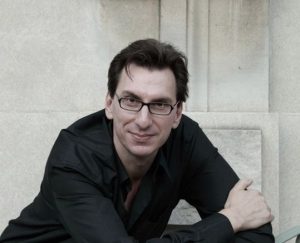 Harvard Professor Peter E. Gordon will present “The Disenchantment of the Concept: From Heine to Adorno” on February 23 at 5:00 pm in the Class of ’47 Room at the Babbidge Library for the Center for Judaic Studies and Contemporary Jewish Life’s Konover Special Lecture Series. The event is co-sponsored by UConn’s German Studies program.
Harvard Professor Peter E. Gordon will present “The Disenchantment of the Concept: From Heine to Adorno” on February 23 at 5:00 pm in the Class of ’47 Room at the Babbidge Library for the Center for Judaic Studies and Contemporary Jewish Life’s Konover Special Lecture Series. The event is co-sponsored by UConn’s German Studies program.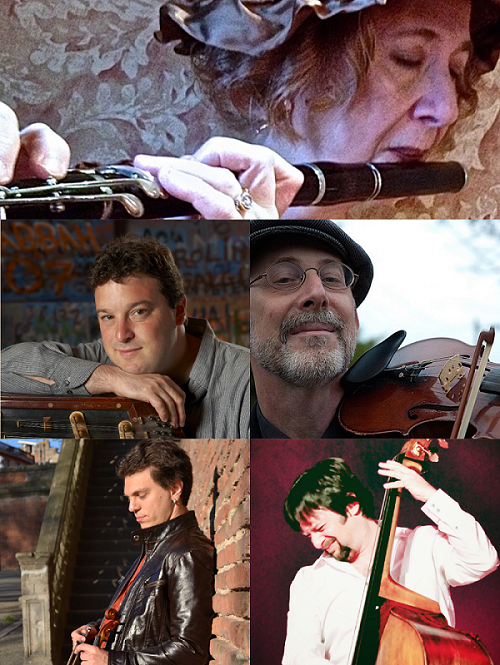
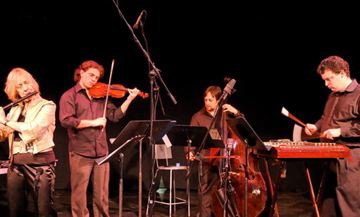
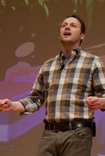 Actor and photographer Gili Getz will perform “The Forbidden Conversation,” an autobiographical one-man play exploring the difficulty of having a conversation about Israel among American Jews. The performance will be followed by an open discussion about the challenging conversations between family, friends, and community concerning the future of Israel, the American Jewish community, and ways to process fundamental differences and disagreements. It takes place on Thursday, February 9, at 7:00 pm in the Konover Auditorium at the Dodd Research Center.
Actor and photographer Gili Getz will perform “The Forbidden Conversation,” an autobiographical one-man play exploring the difficulty of having a conversation about Israel among American Jews. The performance will be followed by an open discussion about the challenging conversations between family, friends, and community concerning the future of Israel, the American Jewish community, and ways to process fundamental differences and disagreements. It takes place on Thursday, February 9, at 7:00 pm in the Konover Auditorium at the Dodd Research Center. 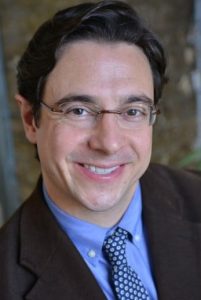 arch 9 at 7:00 pm, Dov Waxman, professor of political science, international affairs, and Israel studies at Northeastern University will present “Trouble in the Tribe: The American Jewish Conflict over Israel.” Professor Waxman will describe how the conflict over Israel among Jewish groups in America has developed and what it means for the future of American Jewish politics. The event takes place in the Konover Auditorium at the Dodd Center and is also sponsored by the Department of Political Science. Professor Waxman will be available after the presentation for a book signing.
arch 9 at 7:00 pm, Dov Waxman, professor of political science, international affairs, and Israel studies at Northeastern University will present “Trouble in the Tribe: The American Jewish Conflict over Israel.” Professor Waxman will describe how the conflict over Israel among Jewish groups in America has developed and what it means for the future of American Jewish politics. The event takes place in the Konover Auditorium at the Dodd Center and is also sponsored by the Department of Political Science. Professor Waxman will be available after the presentation for a book signing.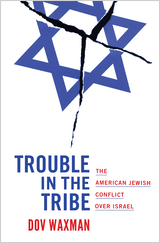 “A meticulous, precise, well-organized survey that takes into account the many different views and will certainly facilitate the heated conversation.”–Kirkus
“A meticulous, precise, well-organized survey that takes into account the many different views and will certainly facilitate the heated conversation.”–Kirkus